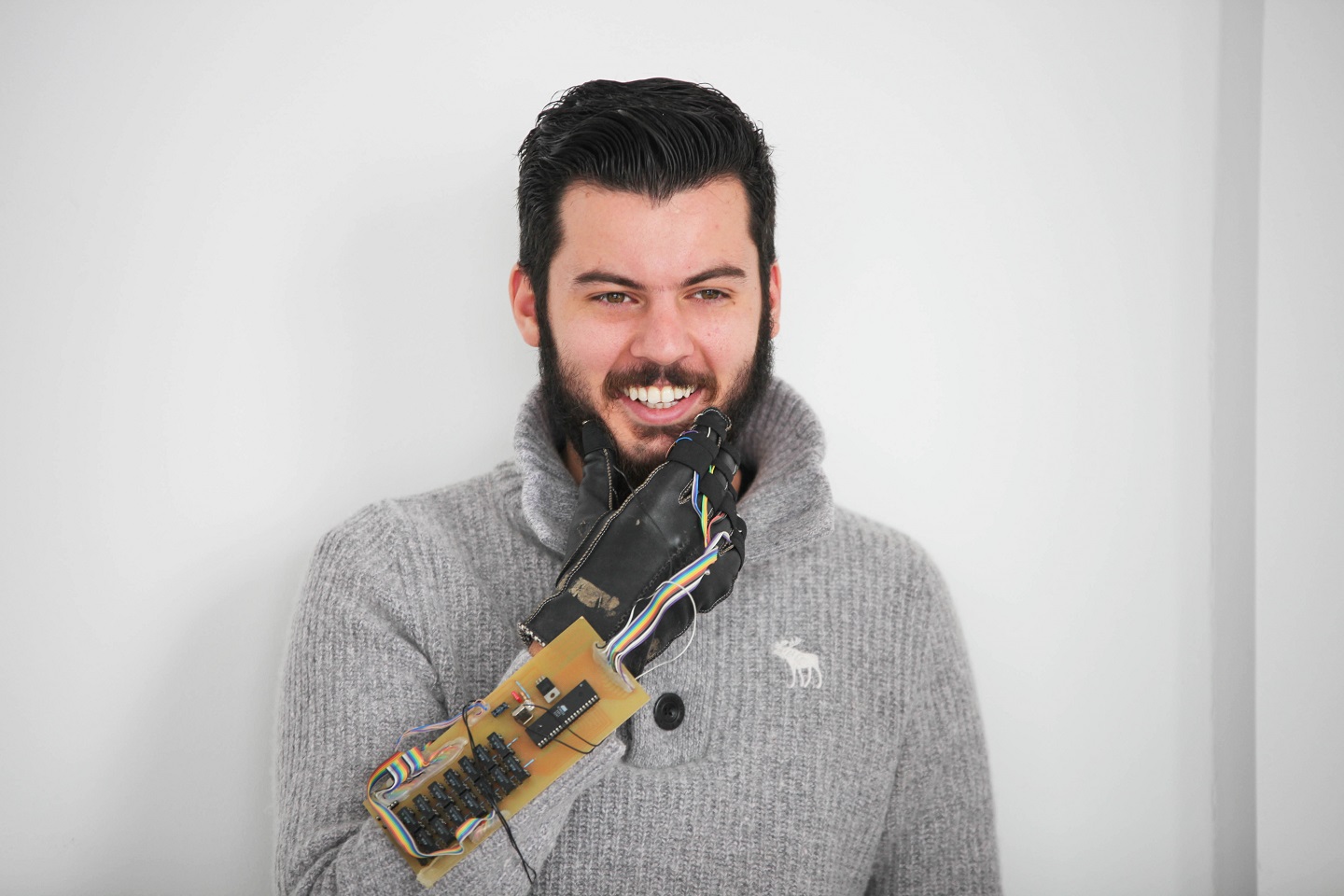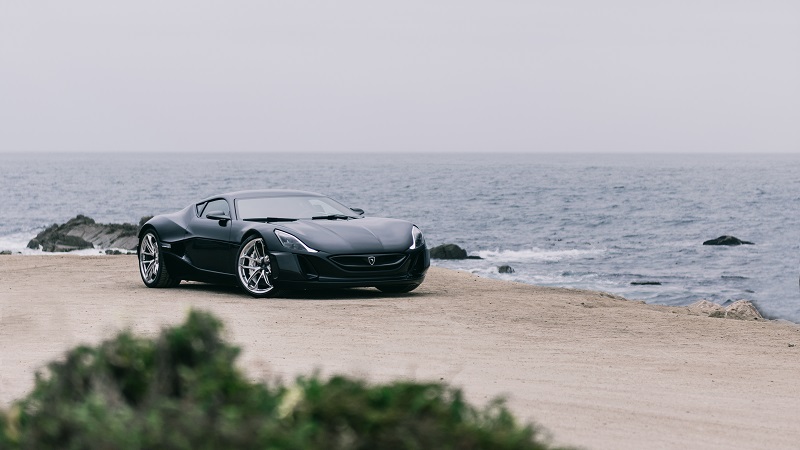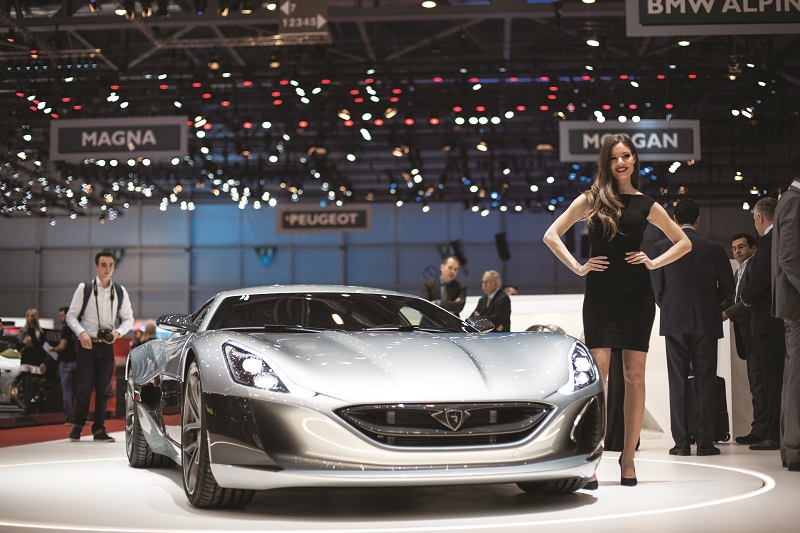
Mate Rimac, founder of electrical supercar company, Rimac Automobili
The phrase “youth is wasted on the young” — often attributed to Irish playwright and political activist George Bernard Shaw — is applied derisively to young people with an apparent lack of perception for temporal nonlinearity. To challenge and indeed counter that generalisation, I have just two words: Mate Rimac. Having founded the world’s first electrical supercar company, Rimac Automobili, three years ago at the age of 27, Mate was selected as Croatian Entrepreneur of the Year in 2017 by Ernst and Young Croatia. Although he didn’t win the EY Entrepreneur Of The Year prize last June in Monaco, he did turn heads for achieving so much, so early on in life.
Based in the Austro-Hungarian city of Zagreb, Rimac’s electric cars are not only efficient and environmentally friendly, but also luxuriously well-appointed, beautifully designed and thoroughly performance-driven. Mate’s goal is to build an automotive company in his native Croatia — which has never had a car industry, and very few technology-based ones — that produces cars to outperform the powerful petrol-guzzlers from the likes of Bugatti, McLaren and Lamborghini.
Tall and bearded with an easy smile, Mate’s journey with Rimac actually began as a child — he loved anything to do with cars, and spending part of childhood in Germany only fuelled that passion. “I have loved cars since before I could walk and talk. It’s really funny, actually, because no one in my family is involved in cars and I was born in a part of Bosnia that didn’t have that many cars, or even roads — it was mostly agricultural. Because of the Yugoslav wars, we moved to Germany, and my parents told me I was so crazy happy because of all the cars on the road,” Mate laughs.
When the family moved back to Croatia, he finished his education in a technical school, where students are required to build something as their graduation project. His was a glove that did away with the need for a mouse and a keyboard — an idea that was especially useful at a time when touch screens were not yet prevalent. This ingenious innovation won several local and international awards, and Mate acquired his first patents before he was 18. While no one owns an iGlove today, it was the earliest indication of Mate’s eye for innovation, creativity and technical flair.

Mate bought a car when he turned 18 — a 1984 BMW 3 Series — to indulge his love for automobiles. His boxy, sturdy E30 was barely two weeks old when its engine blew during a race, but rather than a like-for-like replacement, he considered something totally different. “I was always thinking about an electric car, and I grew up reading about Nikola Tesla — who was born in Croatia — and I wondered why electric motors in sportscars hadn’t already been done. It’s hard to imagine now, but electric cars then were considered not very exciting. But I wanted to change that — I wanted to make not just an electric car, but one that would kick petrol powered cars’ asses,” he shared.
Elon Musk’s Tesla cars were launched at about the same time in Palo Alto, California, but it was a distant reality from the gritty races in Croatia where Mate was bravely showcasing his electric car in. Indeed, the Croatian racing community weren’t at all impressed and endlessly jeered Mate. “They used to tell me I was racing a washing machine,” he says, grinning good-naturedly. “I had many issues with my car, but after every race, I fixed each thing that went wrong so after a while, I got faster and faster and that’s when people realised I was on to something — they stopped laughing at me, and would come to the races to watch me instead.”
Mate’s success is even more notable considering he was racing against powerful petrol-powered cars. “I won my first race in 2010 — which, as far as I’m aware, is the first time an electric-powered car has beaten a gas-powered one — and in 2011, that old BMW broke several Guinness and FIA records for the fastest accelerating car,” he adds proudly.
Translating his technical skills into a successful business was the hardest part of Mate’s journey. “Croatia never had a car industry, so this was like the perfect storm — new technology in an industry that was notoriously hard to enter, and I had no money. The odds of becoming what we are today were pretty much zero,” he recalls. “I needed to do something to raise funds, so my idea was to work for the industry first instead of in it.”

His solution was to manufacture components for the electric car industry so Rimac would become self-sufficient. While his ideas for an electric supercar remained on the back-burner, Mate and his core team did everything in their power — skipping pay cheques, weekends and holidays — to keep the company in business so their collective dream could one day come true. “For the first five years, I teetered on the brink of bankruptcy pretty much all the time — it was normal for us. But it was still better than the other EV companies that actually went into receivership,” he recalls. Eventually, Rimac managed to secure a total of €60 million in funding, which isn’t all that much bearing in mind the costs involved in electric supercars.
As a result, the company now has two profitable businesses — one that showcases what electric supercars can do, and one that provides end-to-end support for other carmakers eager to get into the electric mobility game. Rimac’s first electric supercar, the Concept One, was launched in 2014 with some truly impressive statistics underpinning its performance — 0 to 100kph in 2.5 seconds, a top speed of 355kph and torque of 1,600Nm. Because Mate and his team was approaching the electric supercar idea from scratch, the Concept One featured several ground-breaking technologies — a torque vectoring system for superior handling, for example, and a user interface that was unlike anything the automotive world had ever seen. Incidentally, the Concept One was used as the official zero-emission race director’s car during the first season of Formula E championship that year.
Meanwhile, the C_Two was launched this year, capable of hitting 0-100 kph in 1.85 seconds and is also semi-autonomous. Rimac only plans to make 150 of these cars, all of which were sold out three weeks after the launch. The first deliveries are expected to take place in 2020.
In the case of both cars, stunningly luxurious interiors perfectly match stylised exteriors that are 100% purpose-designed for performance — aerodynamics, safety and technical requirements dictate every aspect of the design. Completely bespoke, high levels of innovation and previously unseen technology — Rimac sounds a lot like a luxury company, although Mate is opposed to the idea that electric mobility is only for the elite. “We are not a snobby company making cars for only the billionaires of the world, but we have to start here,” he states. “Once the electric mobility model is more popular, we then have the manufacturing capabilities to make it more accessible.
“I’ve had the same opinion for the last five years — it is inevitable that cars one day will be autonomous and fully electric. No one will own cars anymore, nor will they care what is under the bonnet — cars will be a service. Things are going to change rapidly in the next two decades and it will change our lives, like how mobile phones did. Yes, of course, there will still be fans of motor racing and gas-powered vehicles, but electric cars will simply make more sense in the long term because of what cars are becoming,” he adds.
Mate makes his entrepreneurial journey seem easy — a youthful, unlined face belies the sleepless nights he once spent wondering how he was going to pay salaries and bills. Now, all I can see is an intelligent, insightful and extremely hard-working young man who understands, instinctively, that the only way forward is to embrace the future, and that resistance is futile. “This kind of life means sacrificing a lot, and I think my parents would prefer it if I sold the company and lived a normal life with a family. But this is what I’ve chosen for myself,” Mate says, rubbing his chin. “And I don’t think I’d want to do anything else.”
This article first appeared on Aug 13, 2018 in The Edge Malaysia.


